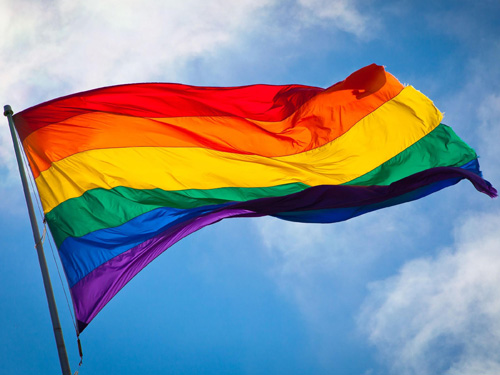
School counselors help to provide a number of services to their school’s students and faculty. For students with marginalized identities, the school experience can be challenging in many ways.
For LGBTQ students especially, adolescence can be a particularly trying time. While all teenage students go through stages of emotional upheaval, becoming more independent, and experimenting, LGBTQ students carry an additional burden of wrestling with their identities. 1
According to statistics compiled by the Human Rights Campaign, LGBTQ students report being harassed in school at twice the rate of their non-LGBTQ peers. 42 percent of LGBTQ youth say the community in which they live is unaccepting of their identity, and 92 percent contend that they hear negative messages about being a member of the LGBTQ community, messages they’re exposed to at school, online, and from their peers. 2
Although widespread legal and cultural changes have been implemented over the past decade, LGBTQ students experience harassment which has the potential to negatively impact their social and emotional development, and put them at risk of failing at school, and can lead to increased thoughts of self harm or suicide. 3
“The current educational environment for many students remains troublesome,” write four co-authors of the GLSEN report, From Teasing to Torment. “Our results demonstrate that although most students feel relatively safe at school, secondary schools are still rife with bias–students and teachers alike report high levels of many types of biased language and many note that bullying and harassment are still significant concerns.” 4
The GLSEN survey also noted some troubling tendencies in schools. While students reported hearing high levels of discriminatory and inflammatory language, they also reported they felt that teachers and administrators rarely stepped in to help intervene. Only one-third of students reported that they experienced intervention by an adult when they were being harassed.
“Although teachers overwhelmingly endorsed the idea that they have an obligation to ensure safe and supportive schools for LGBT students, when it came to taking action to do so, many seemed to struggle,” the authors of the GLSEN survey wrote. 4
Counselors know that in order for learning and meaningful socialization to take place, students need to feel as though they are in a safe and supportive environment free from emotional or physical harm.
What can counselors do to contribute to a more positive school environment for LGBTQ students?
Counselors can work with a number of other educational professionals in order to create a safe environment for all students to thrive, including:
- Creating multiple safe spaces, which can be in an office, to a certain classroom, or a place where student organizations frequently meet. In these safe spaces, students can receive support from counselors, teachers, fellow students, or administrators
- Helping implement student-led programs and clubs that promote safety, student well-being, and an accepting environment for students of all sexual orientations and gender identities
- Providing educational materials relevant to LGBTQ students and supporters
- Encouraging staff to get further training on how to make their classrooms more safe and inclusive for all students
- Developing anti-bullying curriculum
- Helping parents and students find access to psychological care in the community 3
These efforts have proven to help school environment feel safer for all students Research shows that schools that implement LGBTQ support systems have fewer absences, decreased threats of violence, and fewer students who chose to self harm or commit suicide. 5
Counselors play a critical role in helping create a safe space for all students to thrive. Although there has been significant cultural and social progress for the LGBTQ community, the school environment is one where not all students are free from social exclusion and bullying. Counselors can help LGBTQ students by educating students and faculty, providing resources for parents and students, and most importantly, by providing a space where LGBTQ students can express their feelings without judgement or fear.
For those interested in helping students succeed in their school environment, a Master of Arts in Counseling from Wake Forest University will give professionals the skills necessary to to create a safe learning environment for all to thrive.
1 https://www.schoolcounselor.org/
2 http://www.hrc.org/youth/view-statistics/#.WDSoWeYrKUl
